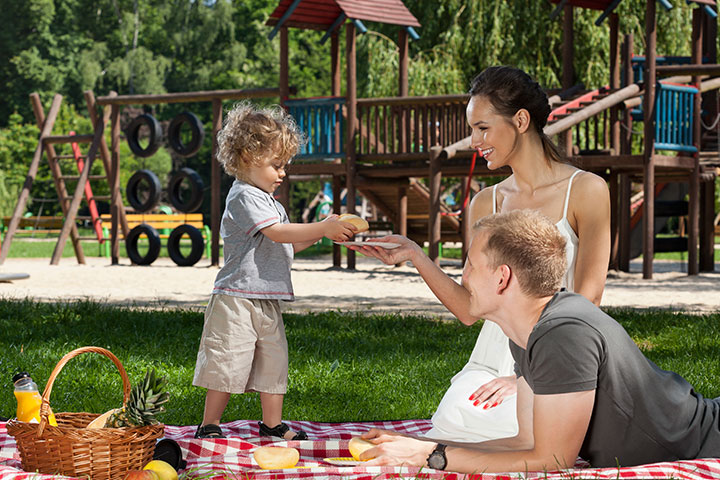
Image: iStock
We all wish our children to exhibit good manners, kindness, and consideration. However, the concept of “respect your elders” stems from an era when the wisdom and life experiences of older generations were held in the highest regard, often to be followed unquestioningly by the younger generation. Yet, this notion has evolved over time and may now appear somewhat antiquated.
Parents have historically employed this phrase to encourage obedience in their children, but it’s essential to recognize the potential pitfalls associated with it. While instilling respect for their elders can certainly foster good behavior, there are consequences tied to adhering strictly to this rule. Read on to know them all.
1. It Can Cause Your Child To Ignore Danger
Image: IStock
Sometimes the belief that your child must respect their elders may overlap and overrule the other important rule you’ve taught them: “Don’t talk to strangers”. This can be detrimental to your child. What if someone older than them insists that they drop your little one home even when they’ve declined? Won’t it be rude and disrespectful? Won’t your child give in and eventually say yes? It’s important to teach your child the difference between being respectful to those older than them and simply complying with everything they say and do. After all, people are not always right just because they are older.
Even adults have trouble confronting figures that are older than them like their parents or relatives when they think they are making the wrong decisions. But why? Entering adulthood with these lessons will stop you from questioning them in difficult circumstances and serious situations. This can lead to an even bigger problem arising in the future. So teach your kids to question everything that is said to them, even if it’s by someone who is older to them.
2. It May Give Your Kids False Priorities
Image: IStock
All people deserve to be treated with love and basic human dignity but that doesn’t mean that your kids should give up everything just for the benefit of someone older to them. It’s important to teach your child who deserves their respect and who doesn’t, which mainly consist of people who would harm or take advantage of your child’s generosity. A good way to gauge this is to look from the bottom of the ladder instead of the top while deciding who doesn’t deserve our respect. Similarly, teach your kids that any person who helps them make their life better in any way must be respected. And it doesn’t have to do anything with age. Remember, teaching your kids to give up a seat on the bus for an elderly person is much different than teaching them to give up everything for the sake of someone older.
3. Demanding Respect Diminished Your Child’s Dignity
Image: IStock
Respect must be earned, it is not something that can be demanded. If you demand respect from your kids by default, it will signal to them that you want to be superior to them. Not to mention that it will diminish their own values which you have probably worked hard to instill. Remember, respect is not a hierarchy. Your children will not respect you simply because you are their parents. They respect you because you sacrifice for them, take care of them and are responsible adults. Show them these positive traits and you will never lose their respect!
Remember, you don’t want your children to be intimidated by you or anyone older to them as a result of the belief that all elders must be respected without question.
4. It Forces The Younger Generation To See Through An Old Lens
Image: IStock
Although there is an undeniable connection between age and experience that only comes from learning from one’s mistakes, this kind of knowledge is situational. Your grandparent’s life advice is shaped by the experiences that they’ve had. But you and your kids live in a different age with different circumstances. Sometimes, their knowledge isn’t always applicable to your situation. So the next time someone older passes judgment on the way you choose to handle situations or wants to pass on some advice, it’s okay to ignore them and trust your gut.
Teaching kids how to be kind, respectful and have boundaries at the same time can be tricky. But it’s important to keep in mind that there are pitfalls to teaching them to always respect their elders. There are always exceptions to a rule and it’s important to teach them those as well. Happy parenting and good luck!
















